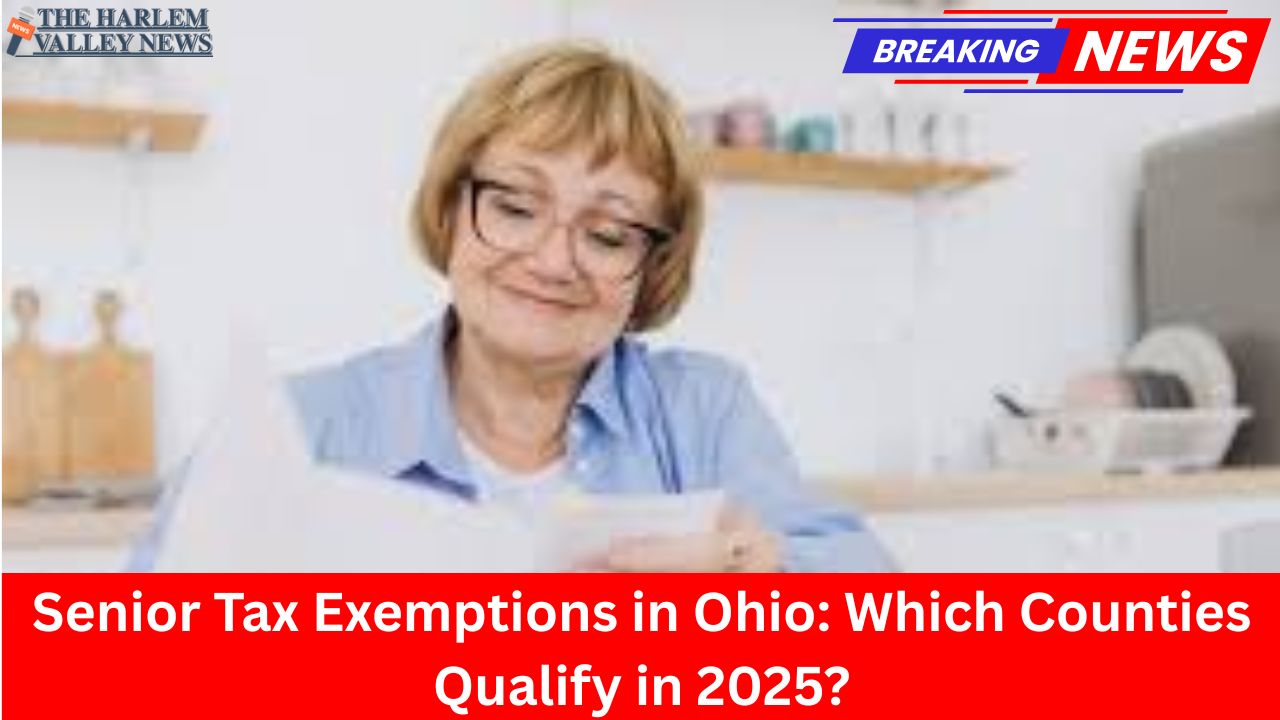Ohio: Property tax burdens can have a significant impact on seniors living on fixed incomes. In Ohio, the Homestead Exemption Program is designed to provide property tax relief for qualifying homeowners aged 65 and older, as well as certain disabled individuals. As we move into 2025, understanding which counties offer exemptions and what the current eligibility requirements are is essential for maximizing potential savings.
The Ohio Homestead Exemption: What Is It?
The Homestead Exemption is a statewide property tax reduction program available to eligible seniors, qualifying disabled persons, and some veterans. The exemption reduces the amount of a home’s value that is subject to property tax, thereby lowering annual tax bills for qualifying participants.
-
For 2025, the exemption shields up to $28,000 of a home’s market value from property taxation, though the precise savings depend on local tax rates.
-
Qualified disabled veterans and surviving spouses of first responders may receive an enhanced exemption.
General Eligibility Requirements for 2025
Regardless of the Ohio county where you reside, the following criteria apply throughout the state in 2025:
-
Age: Must be at least 65 years old by December 31, 2025, or permanently and totally disabled as of January 1, 2025.
-
Primary Residence: The home must be owned and occupied as a principal place of residence as of January 1, 2025.
-
Income: The total household Ohio adjusted gross income (for the applicant and their spouse) must not exceed $40,000 for applications in 2025. (“Enhanced” exemptions for some disabled veterans and spouses of deceased public service officers have no income limit.)
-
Proof Required: Submission of age and residency documentation, such as an Ohio driver’s license or ID.
-
Applications must be submitted by December 31, 2025.
Counties Qualifying for Senior Tax Exemptions
Statewide Availability
All 88 counties in Ohio participate in the Homestead Exemption Program. Each county administers the program through its Auditor’s Office, but the core qualifications are dictated by state law.
Enhanced Benefits and Local Additions
While the basic exemption is consistent statewide, some counties or municipalities may offer additional programs or credits. For example, some cities offer property tax credits specifically tailored for seniors, such as an extra tax credit in Clayton, OH.
Examples of County Programs
Below is a selection of Ohio counties and highlights of corresponding programs and procedures for 2025:
| County | Exempt Value (2025) | Income Limit (2025) | Additional Notes |
|---|---|---|---|
| Franklin | $28,000 | $40,000 | Primary residence as of Jan 1 required |
| Cuyahoga | $28,000 | $40,000 | 100% Disabled veterans eligible for enhanced exemption |
| Defiance | $28,000 | $40,000 | Special rules for manufactured homes |
| Summit | $28,000 | $40,000 | Income based on Ohio Adjusted Gross Income |
| Hamilton | $28,000 | $40,000 | Social Security income excluded |
| Lucas | $28,000 | $40,000 | Manufactured and mobile homes included |
| Stark | $28,000 | $40,000 | Enhanced exemption for qualifying veterans |
| Greene | $28,000 | $40,000 | Surviving spouses of eligible participants can qualify |
| Henry | $28,000 | $40,000 | Local guidance available for applicants |
Applying for the Senior Tax Exemption in Ohio
Step-by-Step Application Process
-
Verify Eligibility: Ensure you meet the age or disability, residency, and income requirements for 2025.
-
Prepare Documentation: Gather proof of age (65+), residency, and income. For disabled applicants, a disability certificate is required.
-
Contact County Auditor: Each county Auditor’s Office provides application forms (commonly DTE Form 105A and any necessary addendums).
-
Submit by Deadline: File your application on or before December 31, 2025.
-
Receive Confirmation: Approved applicants will see the exemption reflected on their property tax bill.
Special Cases and Considerations
-
Disabled Veterans: Qualify for an enhanced exemption, usually double the standard value, regardless of income.
-
Surviving Spouses: If a spouse qualified and passed away, the surviving spouse may be eligible if at least 59 years old and meets other criteria.
-
Moving Residents: Those who had the Homestead Exemption before 2013 may remain eligible without meeting the income limit if moving within Ohio.
Frequently Asked Questions
Can I qualify in every Ohio county?
Yes, the Homestead Exemption is a statewide program. However, some cities and counties may offer additional senior credits—contact your local Auditor for details.
Does income eligibility change?
Yes. The income threshold is inflation-adjusted annually. For 2025, it is $40,000 in adjusted gross income.
When do I need to reapply?
Once you are approved, you generally remain enrolled unless eligibility changes or you move.
What about mobile homes and manufactured homes?
They are eligible for the same exemption, with some minor application differences—check with your local Auditor’s office for guidance.
Conclusion
Ohio’s Homestead Exemption is a powerful resource for property tax relief, open to all counties for qualifying senior citizens and certain disabled individuals in 2025. With the state adjusting thresholds annually, it’s important to keep abreast of changes. For complete, up-to-date guidance and local nuances, seniors should connect directly with their county Auditor’s Office to apply and secure their tax savings.













Leave a Reply